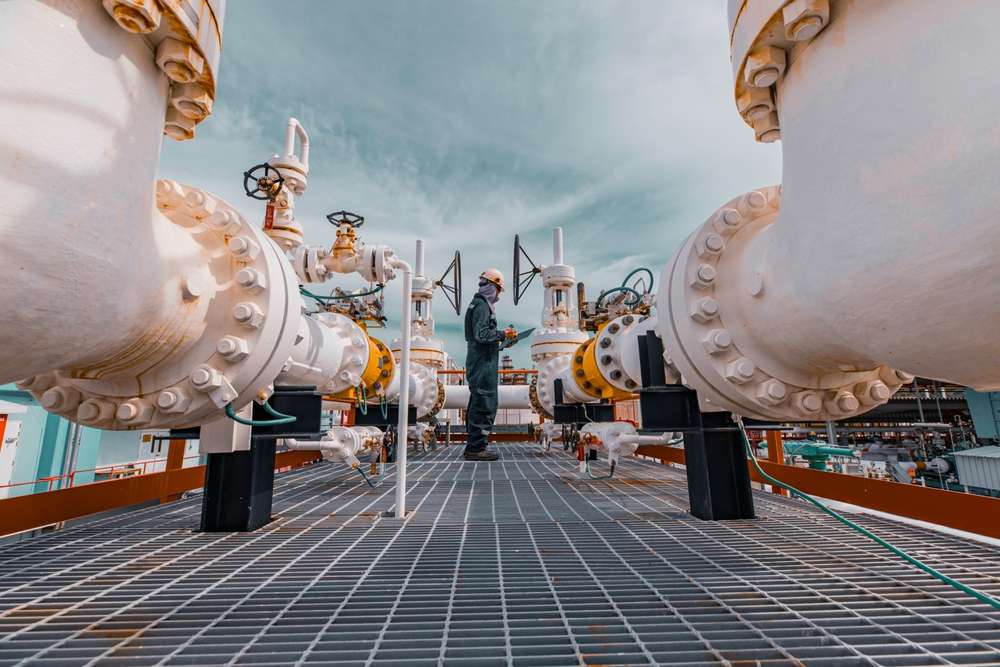Exploring Careers in Offshore Energy: Insights and Trends
Dive into the world of offshore energy professions, where challenging work meets unique rewards. This comprehensive overview examines the diverse roles, required qualifications, and distinctive lifestyle of offshore energy professionals. Gain valuable insights into industry trends, potential career paths, and the realities of working in one of the world's most demanding environments. Discover what it takes to succeed in this dynamic field, from entry-level positions to specialized technical roles.

The offshore energy industry encompasses a wide range of professional roles, each contributing to the sector’s operations in unique ways. While job availability can fluctuate based on market conditions, understanding these positions can help you prepare for potential future opportunities:
Operational Roles: • Equipment Maintenance Specialists • Health and Safety Officers • Drilling Team Members (various levels) • Specialized Engineers (mechanical, electrical, petroleum) • On-Site Medical Professionals • Hospitality and Culinary Staff
Each role plays a vital part in maintaining efficient and safe offshore operations, highlighting the need for a diverse, skilled workforce.
Essential Qualifications for Offshore Work
While specific requirements vary by position and employer, some common qualifications for offshore careers include:
- Physical Fitness: The demanding nature of offshore work requires excellent stamina and health.
- Safety Certifications: Industry-standard safety training is typically mandatory.
- Technical Expertise: Many roles demand specialized knowledge in areas such as mechanics, electronics, or engineering.
- Educational Background: Requirements range from high school diplomas for entry-level positions to advanced degrees for specialized roles.
- Relevant Experience: Prior work in related fields is often valued, especially for senior positions.
- Adaptability: The ability to thrive in challenging environments is crucial.
- Interpersonal Skills: Strong communication and teamwork abilities are essential in the close-knit offshore community.
- Problem-Solving Capabilities: Quick thinking and resourcefulness are highly valued in offshore operations.
Aspiring offshore professionals should research role-specific requirements and pursue relevant qualifications to enhance their potential in this competitive field.
Offshore Lifestyle Considerations
Working in offshore energy presents a unique lifestyle that differs significantly from traditional onshore employment:
• Rotation Schedules: Typical patterns include equal periods on and off the rig (e.g., two weeks on/off). • Intensive Work Periods: 12-hour shifts, seven days a week are common during on-rig time. • Shared Living Spaces: Communal accommodations are standard, with amenities provided. • Limited Communication: While modern facilities often offer internet access, connectivity may be restricted. • Strict Safety Protocols: Adherence to comprehensive safety measures is non-negotiable. • On-Site Amenities: Many installations feature fitness centers and recreation areas for off-duty hours. • Catered Meals: On-site culinary staff prepare all meals for personnel. • Specialized Transportation: Helicopter or boat transfers to and from offshore facilities are typical.
This unique work arrangement can be challenging but offers extended periods of time off and the potential for competitive compensation.
Compensation in Offshore Energy
Salaries in the offshore sector can be attractive, reflecting the demanding nature of the work and required expertise. However, compensation varies widely based on factors such as job role, experience, location, and market conditions. While specific salaries fluctuate, here’s a general overview of potential earnings:
• Entry-level positions may start around $40,000-$55,000 annually, with experienced workers in these roles potentially earning $60,000-$80,000 or more. • Skilled technicians and mechanics often see salaries ranging from $60,000-$120,000, depending on specialization and experience. • Drilling professionals’ earnings can range from $70,000-$180,000, with senior positions commanding higher salaries. • Specialized engineers may start at $80,000-$120,000, with experienced professionals potentially earning $150,000-$200,000 or more annually. • Management positions can see compensation packages ranging from $100,000 to $300,000 or higher.
Many offshore positions also offer additional benefits such as health insurance, retirement plans, and paid travel expenses. Overtime pay and performance bonuses can further increase overall compensation.
It’s important to note that these figures are general estimates and can vary significantly. Prospective offshore workers should research current market rates and consult with industry professionals for the most up-to-date salary information.
Career Development in Offshore Energy
The offshore energy industry offers various pathways for career growth and professional development:
- Vertical Advancement: Progression from entry-level to more specialized roles with increased responsibility and compensation.
- Technical Specialization: Developing expertise in specific areas like subsea operations or well control.
- Leadership Opportunities: Transitioning to supervisory or management roles, either offshore or in onshore operations.
- Cross-Functional Experience: Opportunities for cross-training to broaden skill sets and increase versatility.
- Continuous Learning: Pursuing additional qualifications and industry certifications to enhance career prospects.
Key factors for advancement include ongoing education, demonstrating leadership potential, and adapting to new technologies and industry practices.
Industry Outlook and Considerations
The offshore energy sector continues to evolve, influenced by global economic factors, technological advancements, and environmental considerations. While the work can be demanding, many find the combination of competitive compensation, extended time off, and the chance to work with cutting-edge technology rewarding.
It’s crucial for those considering a career in this field to thoroughly research current industry trends, job market conditions, and specific company policies. The offshore energy landscape can change rapidly, and staying informed about emerging technologies, environmental regulations, and safety advancements is key to building a successful and sustainable career.
Prospective offshore workers should carefully weigh the lifestyle implications, required qualifications, and long-term career prospects before pursuing a position in this dynamic field. Consulting with industry professionals, attending job fairs, and connecting with current offshore workers can provide valuable insights into the realities of this career path.
As the energy sector continues to transform, adaptability and a commitment to ongoing learning will be essential for those seeking to thrive in offshore energy careers. While the industry offers unique opportunities, it’s important to approach it with realistic expectations and a clear understanding of both the challenges and potential rewards involved.






